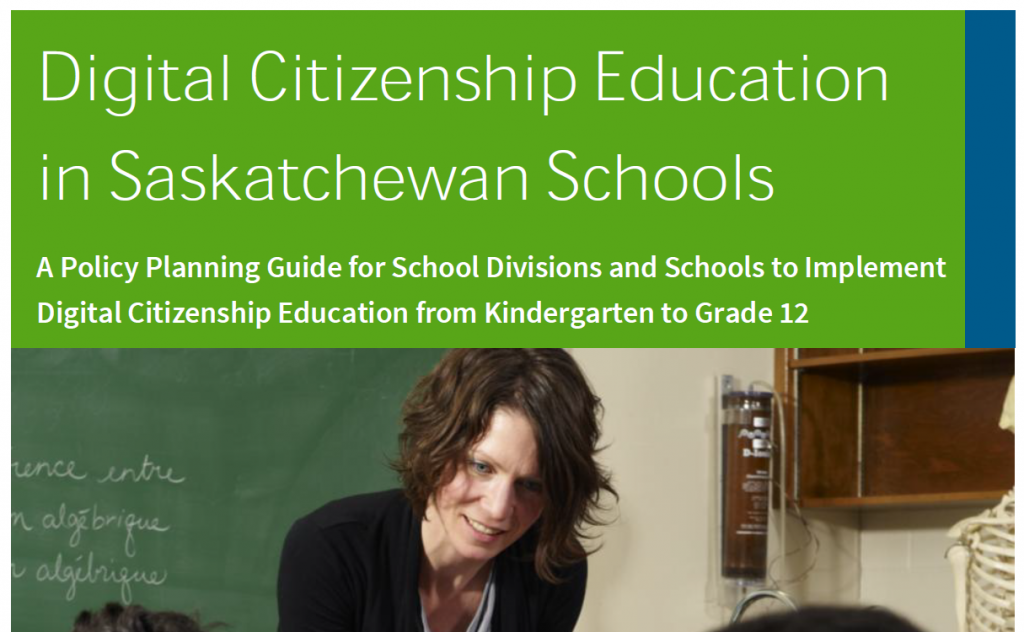Debate 7: Educators have a responsibility to help students develop a digital footprint.
Another great debate! In the beginning I was in agreement with the statement, but after the debate I voted against it! Awesome job by both teams! But now that I have read into it more, I must again side with the Agree Team…
During the debate, the definitions of digital citizenship and digital footprint were brought up.

According to Dr. Couros and Dr. Hildebrant’s 2015 document “Digital Citizenship Education in Saskatchewan Schools”, digital citizenship is:
“The norms of appropriate and responsible online behavior” and “the quality of habits, actions, and consumption patterns that impact the ecology of digital content and communities” (p. 4)
In Buchanan et al.’s (2017) article, they describe a digital footprint as:
“the information and data that people generate, through purposive action or passive recording, when they go online” (p. 275)

I see these as VERY similar things! And therefore I believe teachers should share the responsibility in learning and teaching their students about BOTH being a digital citizen and leaving a positive digital footprint.
Couros and Hildebrant also go on to write about the “rights and responsibilities we have in online spaces” and in our participation in the online community. Again, I see this as a crossover point between both digital citizenship and footprint. Students need to be taught about their rights and responsibilities as an online citizen, INCLUDING how to make and utilize a positive digital footprint.
Couros and Hildebrant (2015) quote Eric C. Sheninger: “schools are not doing their part to educate students on digital responsibility, citizenship, and creating a positive footprint online” (p. 7). The Agree Team’s statements connected with this quote. The Agree Team stated that educators are in the best position to undertake this work on educating students about digital awareness and it is an educator’s duty to protect students (in all environments).
I have to agree. Educators are in a prime position to model and teach students about digital citizenship, including their digital footprint. They both go hand-in-hand. The EDTek White Paper (2015) states, “for teachers, this means understanding, advocating and modeling appropriate online behavior to help students effectively navigate this complicated landscape” (p. 1).
And that’s the KEY point – teachers must understand the concepts, hardware and software of digital citizenship and digital footprints. This is where I take a stance with the Disagree Team. They stated teachers are not educated or prepared to teach these topics! Where is the professional development? (Sorry Jennifer O – I know you are doing an amazing job!) Where are the pre-planned lessons that can fit into those grade 6 outcomes on identity? They are not a priority. In an education system that is literally hanging onto budgets, staff, resources, by a thread – Where does the time and money go? How many ED Technology staff are there per school division? With one or two teachers who are the ED Tech consultants, they must prepare, implement, share, and service the education technology for an entire division!?! Bananas.
Finally, I really connected with Kim’s comments on Big Tech companies lack of accountability and how they pass the buck. This happens EVERYWHERE! Kim gave a great example of how other big companies pass the buck to the individuals: oil and gas companies saying that consumers should just drive/use less. This reminded me of how sugar companies and food producers (ex: Kraft) say that consumers have a choice in what they eat, and they do not take responsibility for today’s health problems.

Who will hold these big companies accountable? Do the masses have to boycott their products? Is this where social media could be used to share information on these big companies, to make people aware and educate them on what is happening? I would agree that education pieces are out there. Take Netflix’s 2020 documentary, The Social Dilemma. It very much educates the public on Big Tech’s dangers. But was anything done about it? I remember when that documentary came out, some teachers at my school were showing it to their classes! Could that be a jumping point for teachers? To start the conversation on digital citizenship and digital footprints?
Just thoughts!

Hi Nicole!
Such a great blog post, thank you for sharing your insightful thoughts on such an important debate topic!
I completely agree with your comment about the PD aspect for teachers in regards to teaching digital citizenship and about digital footprints in our classrooms. Perhaps I am completely missing the division advertisements and announcements for these types of opportunities or essentially, there are little to none. Both personally and professionally, I do not feel as though I have the adequate information to teach my students about such topics in the classroom. Not to mention, I still have yet to fully understand the division media release form that I send home to families at the beginning of each school year!
Hi Nicole and Alyssa (I read your comment, too;). Yes, Nicole, I largely side with the AGREE team too…hahaha! I think it’s safe to say that most teachers became teachers to help DEVELOP students and their current essential skills. Navigating the online world is certainly an essential skill, and we do have a responsibility to guide our students. I agree with you both though, Nicole and Alyssa; more needs to be done to educate teachers/divisions so that consistent lessons with consistent resources are being provided. The sad thing is – as an online learning support services teacher- it is actually my job to create these resources for teachers in my division. I try to say this without taking it personally, but unfortunately, many teachers do not use these digital citizenship resources even though they are provided. I still think a larger push from divisions and our government is needed. And of course, those big tech companies need to be held accountable. Some of the links we shared in our DISAGREE List (under part D) highlight some non-profits encouraging these necessary online changes. I encourage everyone to sign and share!
P.S. – Alyssa, I still need to do a much better job with those release forms, too. If I was preaching to anyone on Monday night, it was myself!